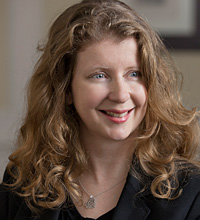Celebrating and Inspiring Philanthropy around the World
Following on ten other articles on philanthropy this year, The Practitioner is pleased to present “Celebrating and Inspiring Philanthropy around the World” by Lenka Setkova.
A recent report from the Coutts Institute on philanthropy illustrates that major philanthropy is thriving. Tracking donations of $1m or more worth a total of $26.3bn across the UK, USA, Middle East (GCC), China, Hong Kong, Singapore and Russia – up from $19bn in 2013 – the findings suggest that major philanthropy is becoming more prevalent, more visible and more organised.
Looking across all regions covered in the report, the combined value of the donations of $1m or more rose in all of the seven areas studied. While the nature of philanthropy is clearly very different across the regions studied and any direct comparison would be misleading, there are a number of trends worth noting. For example, echoing our findings last year, higher education topped the table of most popular causes supported in four of the seven regions (the UK, USA, Hong Kong and Singapore), and came second in a further two.
Foundations attracted sizeable donations in many of the seven regions, with many major donors favouring them as a means of ‘banking’ mega-gifts to be distributed over longer periods of time. This suggests that more major donors are thinking long term. It’s particularly interesting to note the development of foundations in countries, such as Russia, where philanthropy has evolved in its contemporary form quite rapidly in recent history.
Other notable points are that a majority of major donors focus their philanthropy in their home countries, and that there has been a drop in the amount of funding focused on environmental causes.
The growth in giving to foundations is particularly relevant in the context of family business and wealth succession. Corporate foundations are a feature of many family businesses. Following a wealth creation event, such as the sale of a business, ‘banking’ an amount of money in a foundation for future distribution can provide much-needed space to think and to develop a philanthropy strategy, rather than having to make an immediate decision about where to direct the funds. And in many of the jurisdictions we examined, wealthy families are increasingly seeing philanthropy as a key aspect of wealth succession – some establish family foundations as a means of demonstrating the meaning and purpose of family wealth and a way to engage the next generation in the governance of the family philanthropy.
This report is about more than just data. The interviews with major philanthropists from across the regions illustrate the diverse motivations for philanthropy and the passions, values or visions for a better society that drive it.
To read the full report and the inspiring interviews with major donors go to www.coutts.com/donorsreport
About the contributor:
 Lenka Setkova is an executive director at the Coutts Institute where she advises clients and their families on philanthropy, wealth succession and family business. Lenka joined Coutts in 2011 with 16 years of experience working in the fields of international development and philanthropy for government and private foundations. Lenka can be reached at Lenka.Setkova@coutts.com.
Lenka Setkova is an executive director at the Coutts Institute where she advises clients and their families on philanthropy, wealth succession and family business. Lenka joined Coutts in 2011 with 16 years of experience working in the fields of international development and philanthropy for government and private foundations. Lenka can be reached at Lenka.Setkova@coutts.com.




